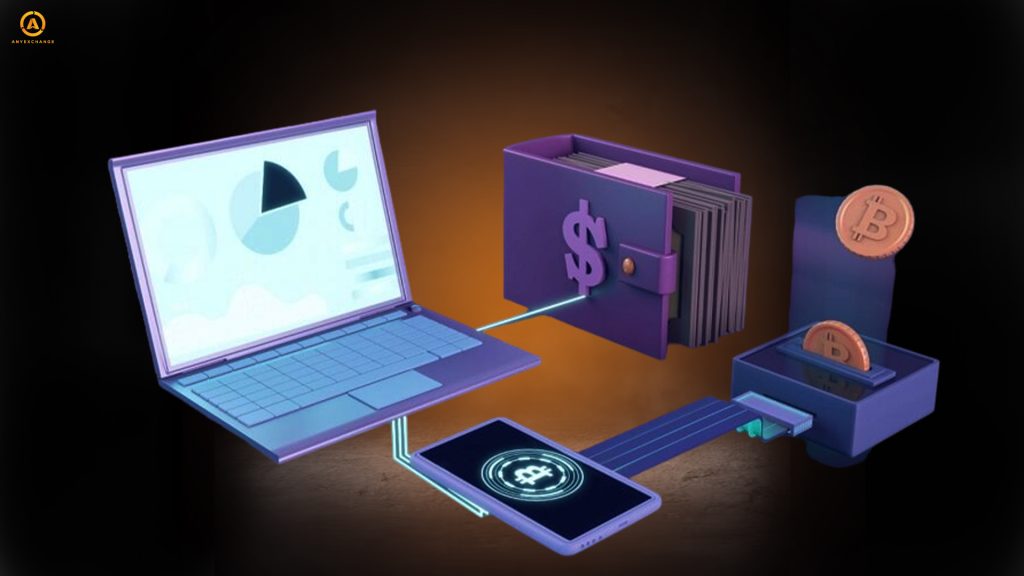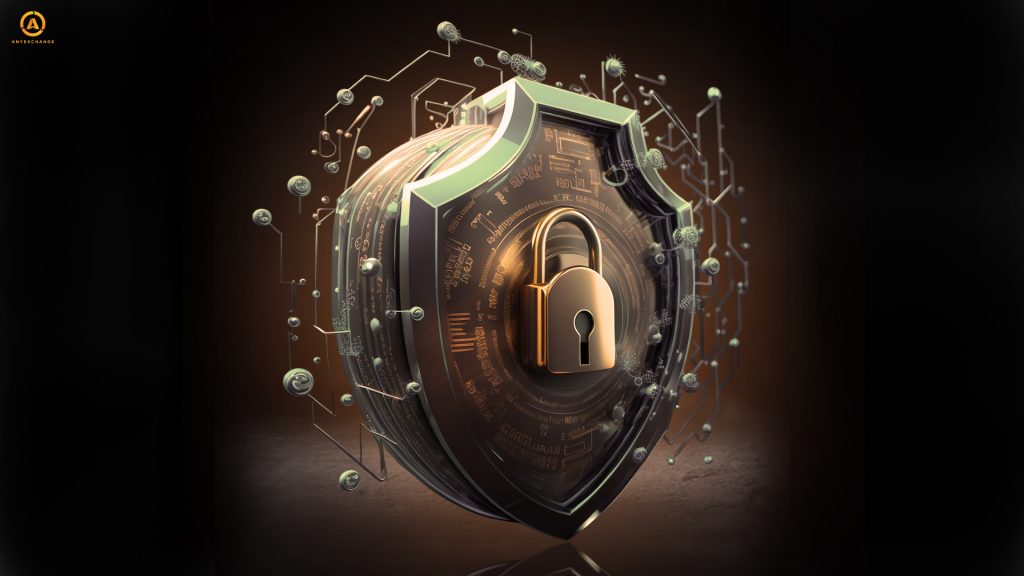
Introduction
A cryptocurrency transaction is a transfer of tokens from one wallet to another (even to a non-existent one). Cryptocurrency payments do not differ from fiat payments in any way, except that they are recorded in the blockchain, which is public and does not require an access code.
Verifying bitcoin blocks through the blockchain and tracking transactions helps in blocking accounts of sanctioned persons. These people often finance terrorists and criminals with cryptocurrency. If their addresses are identified, miners can simply reject all their transactions, or in some cases block them, which will greatly reduce crime and terrorism. This is of great importance for CFT (countering the financing of terrorism) and AML (anti-money laundering).
It turns out that tracking cryptocurrency transactions is of great importance. But is it possible to trace cryptocurrencies without effort? And is it possible to trace a bitcoin wallet?
How the bitcoin network transaction systеm works
If the owner of a bitcoin wallet decides to send a certain amount of cryptocurrency to someone, his address and the recipient’s address are linked, encrypted with cryptography, and an electronic digital signature is generated. The transaction is sent to the pool of unconfirmed transactions.
After that, mining begins:
Miners create an empty block and add transactions to it from the transaction pool. Once the block is full, the miner verifies all transactions.
For verification, the miner uses hardware and checks all previous payments to bitcoin addresses. If the sender has enough coins or tokens for the transaction through previous payments, it is confirmed and will be included in the block. But if there is not enough crypto, then the transaction is not confirmed, will not be included in the blockchain, and remains unconfirmed. In the same way, you can reject all payments from sanctioned persons and intruders.
Blockchain is a distributed ledger that stores information in blocks: transactions and smart contracts. The blockchain is stored on many computers around the world (called nodes). The blockchain is owned by a community of miners and does not have a single control panel. In addition, it is public, and no access codes are required to see it. This means that all transactions can be tracked.
But if all transactions with bitcoin are visible and traceable, why is it decentralised and protects privacy? The blockchain itself is anonymous, and to find out who is hiding behind an encrypted nickname, you need tools and actions, not just a distributed ledger.
The public nature of the blockchain and the anonymity of transactions

Blockchain is a distributed ledger that records approved transactions and smart contracts. Its nodes are scattered around the world, and the only way to disable the blockchain is to destroy all node computers and the network.
Its publicity is one of the pillars and foundations of its credibility. To verify bitcoin transactions in real time, you don’t need any special codes or authority. After all, the public nature of bitcoin is responsible for how transactions are broadcast and, if necessary, tracked.
“How and where can I see where my bitcoins have gone?” – This can be done on websites where the blockchain is broadcast, such as blockchain.info.
But along with publicity, the blockchain preserves user privacy. All payments are recorded, but this does not mean that everyone can find out who sent what to whom and how much. Although transactions are entered into the blocks without encrypting the addresses, the addresses themselves are 34 characters long, and the cryptography encrypts them regardless of the length of the user’s name.
However, if a user trades on an exchange, through P2P, and buys cryptocurrency, his or her identity becomes known. On most exchanges, customers go through documentary identification (KYC). With two-factor authentication, an email or phone number is linked to an account on the exchange. This means that the exchange knows its data. The exchange also records all actions.
Based on this, the answer to the question: “Can the owner of a bitcoin wallet be identified?” is a clear “Yes”.
If anonymity is important to you, use our AnyExchange service . We believe that people need more financial freedom, and it is possible only with anonymity. We protect the privacy and funds of our clients. There are no requirements to reveal the identity of our clients within the Ukrainian legislation, while in international regulations we rely on the laws on information and personal data protection. In addition, our co-operation with our clients falls under the category of “Banking Secrecy”.
Tools and technologies for transaction tracking
It is known how and where you can track a BTC block, but monitoring bitcoin wallets on your own, visually, is an extremely inefficient way. Every second, 3-7 transactions are processed per second, and there are 6-10 thousand transactions in a block, and the difference of only 1 character in the blockchain is critical, because by replacing just one character, you will get a different account. Is it possible to track a bitcoin transaction? – Of course, even without monitoring, certain programs are used for this purpose.
A blockchain explorer is a program for tracking bitcoin transactions that acts like a search engine, but finds up-to-date information about a specific bitcoin address and all its payments. Such programs also show the current state of blocks and track payments.
Payments are tracked by law enforcement agencies and financial organisations, as well as legal entities. Suspicious transactions are often checked: For example, if there was a transfer of a large amount ($1,000-1,000 or more), the money could be used to buy weapons, drugs, money laundering, etc.
Investigative and surveillance capabilities of the blockchain
Each bitcoin address is unique, and a new one can be generated after each payment, so it is not always possible to track the movement of BTC by address. However, it is possible to identify not only users but also transactions, using KYT (Know Your Transaction) identification and identifying payments. Is it possible to trace cryptocurrencies in this way? Yes, and by checking previous transactions, find the addresses and then the user.
When checking transactions, the previous addresses of the recipient and the sender are found out, if they have changed. If these addresses have been involved in illegal activities, the owners are verified and the addresses are blocked.
Sanctions such as blocking financial accounts and refusal to cooperate are applied to individuals and entire countries. Such sanctions are applied to all FATF blacklisted entities. For example, the sanctions applied to the Russian Federation were used to deprive it of the ability to conduct military operations, depriving it not only of finance but also of the supply of necessary technologies.
Risk and privacy in transaction tracking

But even with all the KYT identifications, AML and CFT checks, there are risks. Hackers can steal bitcoins and disperse them to many addresses. They will send bitcoins to other accounts, disperse them again, and send them to the main wallet. From the main wallet, everything will be withdrawn to fiat. Verifying addresses and identifying them can take a lot of time, because you need to check each address, compile reports, and only then can you add addresses to sanction lists.
Otherwise, hackers send a part of the stolen tokens to random addresses, while trying to withdraw the bulk of them. In this case, even the accounts of innocent crypto enthusiasts can be blocked, and the stolen bitcoins can never be found.
If the programs and identification methods are so effective, then no cryptography and cryptocurrencies protect user privacy? No, there are also methods to protect your personal data. For example, regularly changing your cryptocurrency address, not entering crypto addresses on social media, and using cold wallets.
Use the anonymous TOR network, and credit bitcoins only from mining pools and only new bitcoins. Or use CoinJoin technology, which combines several bitcoin transfers into one transaction. But none of this will provide complete anonymity.
Innovations and the future of transaction tracking in the bitcoin network
All blockchain explorers, such as Chainalysis, Crystal, or Elliptic, started out as primitive search engines and later became tools used by the CIA and the FBI.
These technologies were created as a way to trace stolen bitcoins and to verify users and transactions. But they were created in different ways and could be used in different ways. For example, Elliptic was created using machine learning to identify and interact with darknet users, and it also served as the basis for new software. Chainalysis works by processing large volumes of data, although Chainalysis conducts KYT at the slightest touch of crypto data, and Crystal also processes large amounts of information, but analyses specific addresses and lists of certain transactions.
Currently, AnyExchange can be considered the best AML identifier. In addition to effective verification and certificate creation, the service does not disclose personal data of its customers under any circumstances and does not cooperate with customers who are in any way involved in organised crime.
It is possible that in the future they will create programmes for effective transaction tracking. But they will also not violate the anonymity of the innocent.
Conclusion
Since bitcoin does not have many of the disadvantages of fiat, it is not surprising that it is used by criminals. Of course, it is necessary to track transactions and bitcoin wallets. This counteracts the financing of crime and greatly weakens the sponsors of terrorism. Sanctioned addresses are not served, but blocked. For example, Tether Limited has disconnected many crypto addresses that sponsored terrorists in the Middle East.






